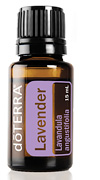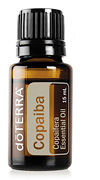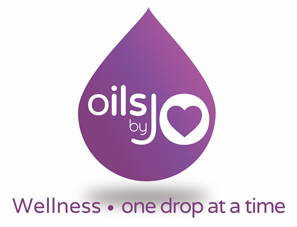Essential Oils for Relaxation
Often, scents get overlooked as a tool for relaxation. Inexpensive and easy to introduce to a daily and nightly routine, there is such a selection of essential oils that can help you relax, mentally and physically, and make it easier for you to then sleep.
Today, I thought I’d share with you the essential oils I recommend to my clients to help improve their relaxation, relieve stress, lift mood, and boost sleep.
How scents affect the body and mind
You’ve probably had the experience of encountering a smell that instantly evokes a strong memory or feeling. The smell of a rose brings back so many childhood memories for me as my grandfather was a landscape gardener and I used to go to work with him each day with my packed lunch and flask.
Our sense of smell is directly wired to our brain and can affect our emotions very quickly. Cells inside the nose detect smells in our environment, and send information to the brain, via the olfactory system. The information about smell goes immediately to the limbic system of the brain, which includes regions like the amygdala that control emotional reactions and memory. This makes smell unique among our senses.
Aromatherapy is a modern term for this ancient practice. And for years, scientists have been conducting studies into the sleep-promoting, stress-relieving, pain-reducing and mood-regulating benefits of essential oils.
The scientific benefits of essential oils for relax, sleep, mood and health
I’m a huge believer of using natural products to support to help relaxation and then sleep and by relieving stress, anxiety, low mood, and physical discomfort. The practice of aromatherapy can do all these things. Essential oils have been used for centuries to promote relaxation and mental and physical wellness. Today, these same oils are increasingly being studied by scientists in search of a more rigorous, specific understanding of their benefits to sleep, relax and health.
So, what are some essential oils that are effective for relaxation?
 Lavender – This is the most popular essential oil for relaxation and sleep among my clients, and my first, general go-to recommendation for people looking to try aromatherapy for sleep. Lavender is a soothing scent that’s long been associated with relaxation and sleep, and used as a natural remedy for anxiety. Lavender is probably the most rigorously studied essential oil. Lavender can also help with pain relief. Lavender also has sedative effects, meaning it can work directly to help you fall asleep. A number of studies point to lavender’s effectiveness for sleep: improving sleep quality, increasing sleep amounts, and elevating daytime alertness, including in people with insomnia. Such a great oil for relaxing the mind as well as the body.
Lavender – This is the most popular essential oil for relaxation and sleep among my clients, and my first, general go-to recommendation for people looking to try aromatherapy for sleep. Lavender is a soothing scent that’s long been associated with relaxation and sleep, and used as a natural remedy for anxiety. Lavender is probably the most rigorously studied essential oil. Lavender can also help with pain relief. Lavender also has sedative effects, meaning it can work directly to help you fall asleep. A number of studies point to lavender’s effectiveness for sleep: improving sleep quality, increasing sleep amounts, and elevating daytime alertness, including in people with insomnia. Such a great oil for relaxing the mind as well as the body.
Rose and Geranium – These two essential oils have similar floral scents, and both have been shown to reduce stress, relax and anxiety, on their own and in combination with other essential oils.
Cedarwood and Sandalwood – With a rich, woody, earthy scent, they have an ancient history of use for relaxation and anxiety relief.. Research has also shown sandalwood and cedarwood can have sedative effects.
Citrus – This is a group of oils that can be stimulating or sleep-promoting, depending on your individual reaction and the type of citrus oil used. Bergamot, a type of orange, has been shown to relieve anxiety and improve sleep quality. Lemon oil has demonstrated anxiety and depression-relieving effects in research. Citrus may help some people fall asleep more easily, while others may find these fresh, bright scents are relaxing, but not sleep-promoting. If citrus oils are stimulating to you, don’t use them before bed—but do consider using them during the day, to help you feel both refreshed, chilled and relaxed. Green Mandarin is a very relaxing and calming oil.
 Copaiba – This is a great oil for the whole body and will support every system in your body. I have had a lot of success with this oil for relax and calming.
Copaiba – This is a great oil for the whole body and will support every system in your body. I have had a lot of success with this oil for relax and calming.
Serenity oil and capsules – we also have a blend called serenity it’s the next level up from Lavender it comes in an oil and also a softgel form.
How to use essential oils for relaxation
Many of my clients are interested in using essential oils for relaxation and sleeping, but they’re not sure how. Here are some simple guidelines to get you started:
Add oil to your bath. This is a great way to get the relaxation and sleep benefits of aromatherapy while also taking advantage of the sleep-promoting effects of a warm soak. Put several drops of your favourite oil into your bathwater. You can also add some Epsom salts to help relax too.
Use a diffuser. Diffusers will disperse oils into the air in your room. Typically, you add water and oil of choice.
Make your own mist. You can combine essential oil and water in a spray bottle and spray around your room, or give a light spray to your pillow. I recommend spraying the underside of your pillow to avoid any skin irritation.
Apply to the body directly. Some people find it soothing to apply essential oils to pressure points, like the wrists or behind the ears, or use oils to give themselves a light self-massage. You can add a drop of your favourite oil to your body creams or mix with fractionated coconut oil. As you’re using essential oils, pay attention to how you feel. Scent is a highly individual experience. Each of us react to smells differently. The right scents for your relaxation are the ones that make you feel relaxed and sleepy! You may need to experiment with different oils before you find the right one for your nightly routine. If a scent makes you feel alert and awake, it is NOT the right one for relax.
Bath Bombs and Body Creams – you can make your own personal care products using the oils and your creams.
One tip I would like to highlight is that you need to start your relax ritual as soon as possible to allow your mind as well as your body to relax and calm from your busy day.
There are also other methods to help relax such as reading a book, going for a walk, go for a swim/sauna, reading a magazine, listen to some calming music, do some mindfulness, do some yoga or meditation and also some breathing exercises.
I hope these have helped you – please feel free to contact me anytime for any further information





